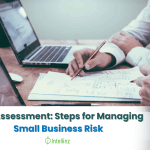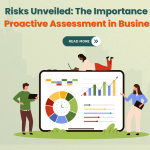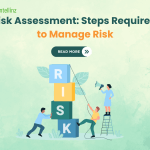In today’s evolving economy, business valuation plays a crucial role in staying compliant when selling or acquiring a company. It is an essential instrument for a business owner to examine both potential and opportunity costs as they plan for future growth and eventual transition.
As a result, technology plays an essential role in many aspects of a company’s operations and relationships with external stakeholders. It serves as a foundation for educated decision-making, financial planning, and overall business management.
The Role of Artificial Intelligence in Business Valuation
Artificial intelligence (AI) is becoming increasingly important in business valuation, disrupting established methodologies and bringing new insights into a company’s worth.
Here are a few significant aspects of how AI is impacting business valuation:
Automated Data Analysis– AI systems can handle and analyze massive datasets considerably quicker and more correctly than traditional approaches.
This covers financial accounts, market trends, and other important data points used in business appraisal.
Risk Evaluation- AI aids in the identification and quantification of business risks. Machine learning algorithms can study past data to forecast potential risks and estimate how they may affect valuation.
Financial Modeling Automation- Financial modeling powered by AI automates difficult computations and scenario evaluations.
This not only expedites the valuation process, but also enables for more complex models capable of simulating a wide range of market scenarios.
Applying Data Analytics in Business Valuation
Traditional techniques of business valuation are being transformed by data analytics. The ability to collect, analyze, and analyze massive volumes of data has become increasingly important for making well-informed choices regarding the value of a company.
Here is a list of roles in business valuation utilizing data analytics.
1. Advanced Financial Analysis– Data analytics enables the development of sophisticated financial models.
These models can simulate multiple scenarios and evaluate the impact of many aspects on the company’s financial performance, resulting in a more nuanced valuation.
2. Industry and Market Analysis- Analyzing market trends and industry benchmarks using data analytics aids in understanding the external elements influencing a company’s valuation.
This includes things like market growth rates, the competitive landscape, and industry-specific dangers.
3. Forecasting Future Performance Using Analytics- Businesses can foresee future financial success by using predictive analytics.
This forward-looking perspective is critical for predicting a company’s prospective growth or decline, which has a substantial impact on its valuation.
4. Using Machine Learning for Risk Assessment
In today’s ever-changing business world, effective risk management is essential for informed decision-making and accurate business assessment.
Furthermore, machine learning can help to modify the risk assessment process by developing risk models that analyze information stored about prior policies to learn from previous failures and successes, allowing newly signed policies to be evaluated more rapidly and reliably.
As a result, machine learning benefits both businesses and customers. Insurance businesses can use machine learning solutions to reduce evaluation time and enable workers to focus their free time on more vital duties, such as enhancing customer service.
Conclusion
As companies accept and integrate these technological innovations, the landscape of business valuation will continue to evolve, giving decision-makers with greater insights and a more accurate knowledge of a company’s true worth.
Embracing technology is not an option for organizations hoping to prosper in the digital age; it is a strategic need.






